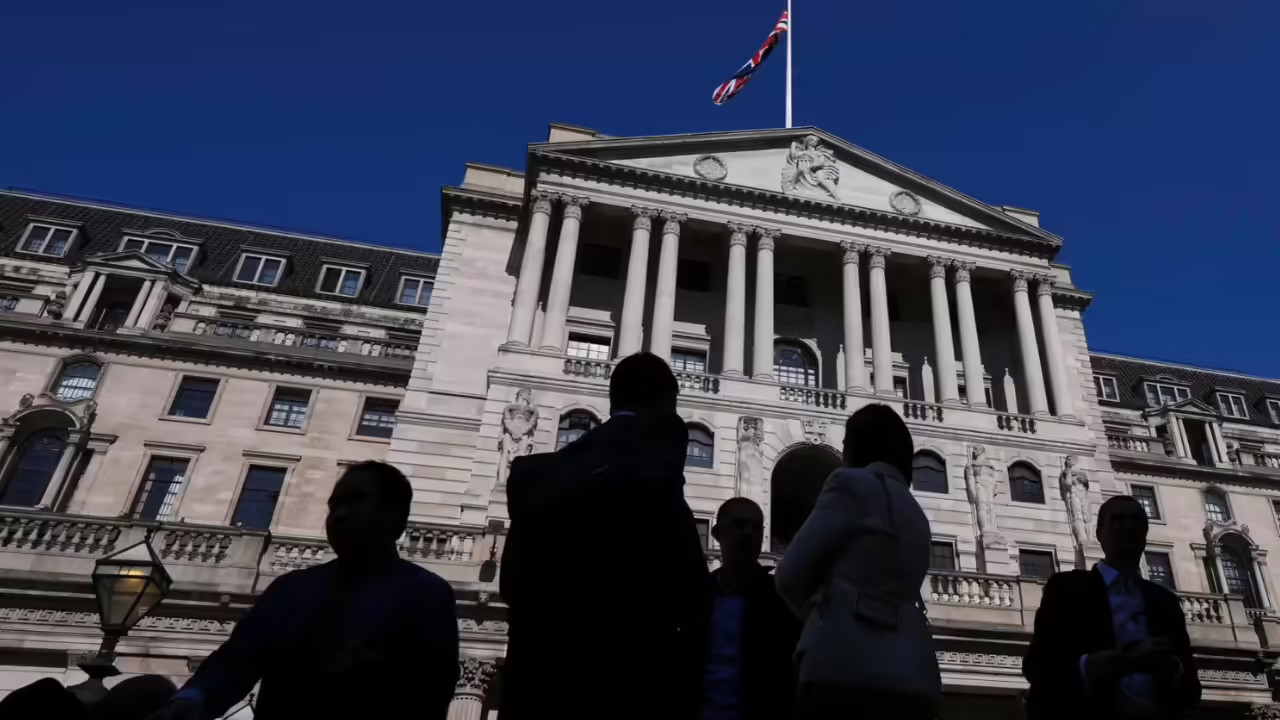The Bank of England maintained its key interest rate at 4 per cent, despite UK inflation remaining high at 3.8 per cent in August, nearly double the 2 per cent target. The central bank has been gradually lowering rates since August 2024, with the next potential cut in November. Economists are uncertain due to persistent price pressures and wage growth.
Navigating Choppy Waters: The Bank of England Holds Steady
The economic climate feels a bit like sailing a small boat in a storm these days. We’re all watching closely as central banks around the world attempt to steer their respective economies toward calmer seas. The Bank of England (BoE) just made a key decision that has everyone talking: they’ve decided to hold interest rates steady at 4%. This pause comes amidst a backdrop of persistent inflation, currently hovering around 3.8%, leaving many wondering what this means for their wallets and the overall health of the UK economy.
This isn’t a decision made lightly. The Monetary Policy Committee (MPC), the body within the BoE responsible for setting interest rates, has been walking a tightrope for months. Raise rates too aggressively, and you risk tipping the economy into a recession, choking off growth and causing unemployment to rise. Hold rates too low for too long, and inflation, that invisible thief, continues to erode purchasing power, making everything from groceries to rent more expensive.
So, why the hold? The MPC has clearly taken a look at the latest data and determined that a steady hand is needed, at least for now. They’re likely factoring in several things: the global economic slowdown, the potential impact of geopolitical events, and the lagged effects of previous interest rate hikes. Remember, it takes time for interest rate changes to fully ripple through the economy. Mortgages, loans, and business investments are all impacted, but not instantaneously. The Bank is likely assessing the impact of previous moves before making further adjustments.
Why UK Interest Rates Matter to You
Even if you don’t spend your days poring over economic reports, UK interest rates have a direct impact on your day-to-day life. If you have a mortgage, the rate dictates how much you pay each month. Savings accounts and investments are also affected, influencing the returns you earn.

For businesses, interest rates play a critical role in investment decisions. Higher rates make borrowing more expensive, potentially discouraging expansion and hiring. Lower rates, on the other hand, can stimulate investment and growth. The BoE’s decision, therefore, has far-reaching consequences for the entire UK economy.
The Inflation Conundrum
While the BoE has a target of 2% inflation, bringing it down to that level has proved to be a persistent challenge. Several factors are contributing to this stickiness. Global supply chain disruptions, energy price volatility, and strong wage growth are all playing a role in keeping prices elevated. The question now is whether the current level of interest rates is sufficient to bring inflation back under control without causing undue damage to the economy.
The BoE is betting that it is, but they are also keeping a close eye on the data. They’ve made it clear that they are prepared to act if inflation proves more persistent than expected. That could mean further rate hikes down the line.
What’s Next?
The path ahead remains uncertain. The global economic outlook is clouded by various risks, and the UK economy faces its own unique challenges. The BoE will continue to monitor the situation closely, assessing the latest data and adjusting its policies as needed.
For consumers and businesses, the best course of action is to stay informed and plan accordingly. Consider your financial situation, assess your risk tolerance, and be prepared for potential changes in interest rates. Explore options for managing debt, diversifying investments, and building a financial safety net. The key to navigating this uncertain economic environment is preparedness and adaptability. For related financial planning advice, read our piece on [building a resilient financial portfolio](internal-link-to-related-content).
The Bank of England’s decision to hold interest rates steady is a calculated gamble. Whether it pays off remains to be seen, but one thing is certain: the next few months will be crucial in determining the direction of the UK economy. We’ll continue to follow these developments closely and provide updates as they unfold, helping you stay informed and make the best decisions for your financial future.







